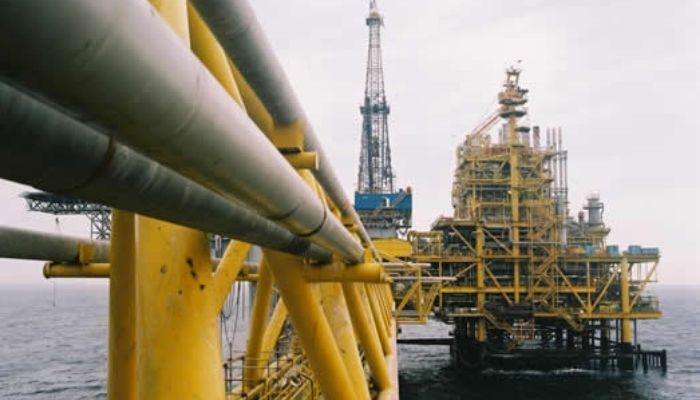Nigeria’s oil production has hit a rough patch despite a 100 percent increase in the number of active drilling rigs in a sector that accounts for a significant chunk of government revenue and foreign exchange earnings.
Nigeria, one of Africa’s largest oil producers, has seen its rig count more than double in recent months, increasing from 16 active rigs in 2021 to a record 34 by 2024, according to Nigerian Upstream Petroleum Regulatory Commission (NUPRC).
Gbenga Komolafe, chief executive of NUPRC, said this growth has been widely seen as a sign of revitalisation in the country’s beleaguered oil sector, which has been plagued by years of underinvestment, aging infrastructure, and attacks on pipelines by militants.
Read also: Nigeria sees opportunities in Trump’s pro-oil stance to grow petroleum industry
However, despite the increase in drilling activity, Nigerian oil output has remained disappointing.
Oil output has struggled to rebound in the same proportion, hovering at around 1.5 million barrels per day (bpd) in 2024, far below its potential of over 2 million bpd, which it achieved 11 years ago.
“The doubling of the rig count is encouraging, but the real issue is the state of Nigeria’s oil infrastructure,” said Chike Obi, a Lagos-based oil industry analyst. “Many of the new rigs are being deployed to mature fields, where production rates are declining, and the time it takes to bring new wells online is longer than expected. The country needs substantial investment in both exploration and infrastructure to see real progress.”
Other analysts suggest that while the rise in rig activity signals potential for future growth, the country’s oil sector continues to struggle with multiple challenges, including aging infrastructure, security threats, and underinvestment in new fields.
“While the number of rigs has increased, the actual production capacity has not grown at the same pace,” said Ngozi Ibe, an energy policy expert at Center for Development Studies.
“In some cases, rigs are operating without the necessary support infrastructure in place, and this leads to inefficiencies.”
Ibe said there is a silver lining here a the increased rig activity indicates that companies still see value in Nigeria’s oil assets.
“If the government can address the security and infrastructure issues, there’s no reason why output can’t rise significantly,” said Ibe.
Struggling oil output
Between 2013 and 2023, Nigeria consistently missed its crude oil production targets outlined in annual budgets, primarily due to infrastructure challenges, oil theft, and OPEC+ production cuts.
In 2013, the production target was set at 2.5 million barrels per day (bpd), but actual output ranged between 2.1 and 2.2 million bpd, falling short by about 300,000 bpd.
The following year, the budget estimated production at 2.3883 million bpd, while actual production averaged 2.05 million bpd, a shortfall of 450,000 bpd.
Read also: NCDMB signs new guidelines to drive local content development in oil & gas industry
By 2015, the target dropped slightly to 2.27 million bpd, but actual output was just 1.9 million bpd, missing the mark by over 300,000 bpd.
In 2016, the country aimed for 2.2 million bpd, but disruptions forced production to plummet to 1.4 million bpd mid-year, with an average of 1.6 million bpd by year-end.
The 2017 budget again set the target at 2.2 million bpd, but actual production was approximately 2.04 million bpd. In 2018, the target increased to 2.3 million bpd, though actual output only reached 1.84 million bpd.
For 2019, the projection remained at 2.3 million bpd at a benchmark price of $60 per barrel, but production fell to 1.5 million bpd by December.
In 2020, amid the COVID-19 pandemic, the target of 2.18 million bpd at $57 per barrel was drastically missed, with actual production falling to around 900,000 bpd. In 2021, the target was 1.86 million bpd, but OPEC+ restrictions limited output to an average of 1.4 million–1.5 million bpd.
The 2022 budget projected production at 1.6 million bpd, yet actual output ranged between 1 million and 1.24 million bpd due to persistent theft and sabotage.
By 2023, Nigeria’s production, including condensates, stood at just 1.39 million bpd—well below the budgeted target of 1.69 million bpd, continuing a decade-long trend of underperformance in crude oil production.
Africa’s largest oil producer has averaged 1.5 million barrels per day (bpd) of crude oil output this year, significantly below its estimated capacity of 2.2 million bpd.
The shortfall has been attributed to theft, underinvestment, and technical challenges at aging fields, according to S&P Global Commodity Insights.
Need for more investments
When an oil executive said Nigeria needed $25 billion per annum in investments to be able to achieve a production target of 2 million barrels daily, it appeared like a false alarm.
The 2010s witnessed a period of significant foreign direct investment (FDI) from international companies eager to tap into the country’s vast oil and gas reserves as the future for Nigeria’s nascent indigenous upstream oil and gas industry looked bright, almost dazzlingly so.
Read also: Skills gap slows Nigeria’s oil sector growth
In 2014, Nigeria attracted the largest amount of FDI of any African country, with inflows exceeding $22.1 billion. This influx of capital fuelled major projects, including deepwater exploration and development of new oil fields.
In the second quarter of 2024, oil FDI stood at $5 million.
“Prioritising political interests over transparency and due process in asset sales has led to corruption, mismanagement, and ultimately, the underperformance of the sector,” Austin Avuru, executive chairman of AA Holdings, said at the Harvard Business School (Association of Nigeria) event in Nigeria’s commercial capital last year.
